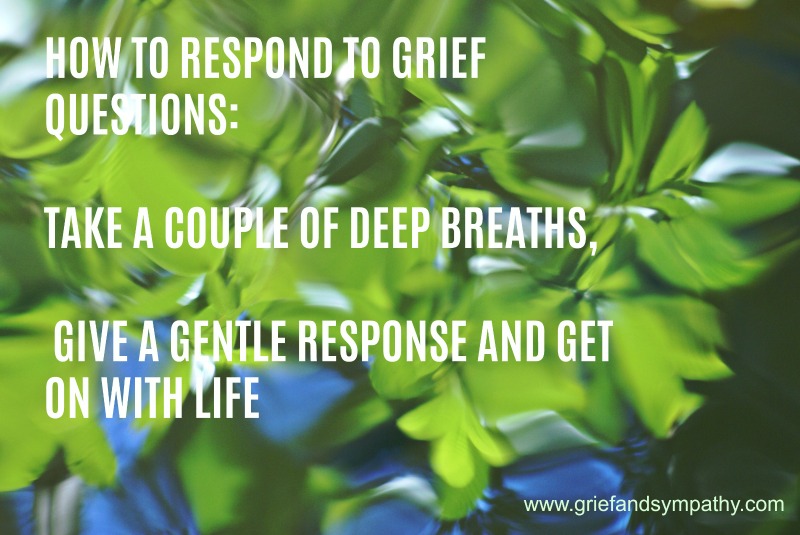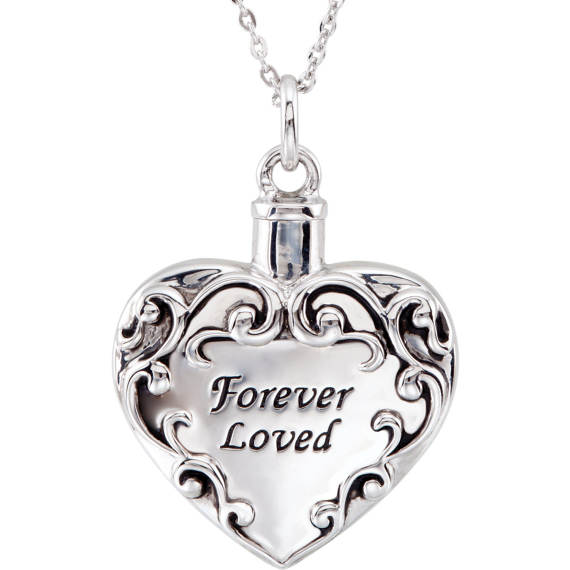How Do We Talk to People About Our Grief?
After the loss of a loved one, it's hard for us to know what to say to other people. Often others feel awkward and at a loss for words when they are approaching us, as the newly bereaved. Sometimes, they will even cross the road to avoid us, usually because they are afraid of saying the wrong thing and upsetting us. Many people find it very difficult to hear about loss because they don't know how to deal with it themselves. Those who have a lot of empathy find it particularly difficult because they will feel your pain.
For the bereaved, it is also often easier to avoid people as we don't know how to respond when people ask us how we are feeling or say something to us that we find difficult or confronting. Neither do we wish to make our friends or family feel awkward or embarrassed. It is often a situation where neither side know what to say for the best.
When we greet neighbours, acquaintances and friends in normal circumstances, we have the usual short exchanges - "How are you?", "I'm fine, thank you, doing some shopping for my son's birthday" or similar. After a loss, these normal conversations seem all wrong and loaded with meaning. The last thing you feel like doing is tell them how you really are and if you do, you risk them avoiding you in the future. So how do you navigate these encounters?
Here are a few examples of what you could say to some of the usual questions:
1. How are you?
Don't launch into a long explanation of how you are feeling unless it is a very dear friend and they have plenty of time. Most people are busy with their own problems, and don't expect you to stop for a long chat, so it's best to just acknowledge that they are trying to reach out and show they care. Some simple responses might be:
"I'm coping day to day at present, thank you. How are you?"
or
"Fine, thank you. I'm too busy to take in what has happened at the moment".
2. "I am so sorry for your loss"
Be prepared for what you are going to respond to this. Something like:
"Thank you, I appreciate that, and thank you for your card"
if that is appropriate.
3. "I don't know how you are coping, I'm not sure I could".
This is a difficult one and not very tactful really. It's a query that could make anyone who is bereaved feel angry but take a deep breath and respond gently. Remember, people ask tactless questions when they don't know what to say. They ask before they think. I used to say:
"I'm taking a day at a time. I have to cope, I don't have a choice really".
4. She/He is in a better place.
This is a tough one if you don't believe it yourself and even if you do, it is hard not to wish they were still with you. It can be quite confronting. But grit your teeth and just respond with something like:
"Thank you, I do hope so. At least he is free from pain but our loss is huge. We all miss him very much."
5. I can't imagine what you're going through right now.
Take a deep breath and say:
"That is kind of you, we are managing to get through a day at a time, some days are harder than others."
6. I know just how you feel.
This is almost as bad as no-one can know how you are feeling as we are all different. But try not to let it get to you. Try saying:
"It is difficult but our family and friends are giving support. There is no choice, you have to cope with every day tasks as best you can."
7. It's a blessing in disguise.
Try not to scream at this one even if you are screaming inside. The person who says this means well. Just say something like:
"Yes, he was so ill but the loss is hard to bear. We try to remember all the happy times we had, but the loss is still difficult to cope with."
When you get these awkward greetings after your loss, try to be patient and tolerant. Remember the person talking to you will be finding it difficult to find the correct words of comfort and get it wrong unintentionally.
They mean well. Take a deep breath and have a few responses in your mind. Keep things simple and contact short, you may say you have a meeting or appointment to go to.
Please do not let your concerns about these encounters prevent you from going out for walks or shopping. It will help your well being to keep busy and get exercise.
What about when someone doesn't know about your loss?
About a month after my husband died suddenly I was at a meeting. A friend came up to me and said, "Where is your husband tonight?". Everyone around me who knew, gasped. I took a deep breath and said quietly, "I'm sorry to tell you that he died suddenly". The friend who has asked had such a shocked look that I reached out and hugged her. She and her husband had been away for the last month and she hadn't heard.
I could have cried and run off home, but it would have made the situation worse and upset a lot of people. So take a couple of deep breaths, give a gentle response and get on with life.
"When the going gets tough, the tough get going" comes to mind.
Tips on how to negotiate casual encounters with others
- Keep encounters brief.
- Be polite, but say you are busy and in a rush. This way you need not go into painful details.
- Have a few responses in mind for the questions you will get.
- When you meet someone who was close to the person you lost, there may well be a tearful reunion, but that is good too. The fact that others are missing them too is a comfort for you.
- Please do not isolate yourself for fear of upsetting someone. Your loved one would have wanted you to get on with life. The love you shared makes you stronger and you will cope.
Unloading how we really feel - Save your grief talk for close friends only
There are many times when we need to unload how we really feel. Save these times for close friends you can trust.
Yes, there will be occasions when you feel tearful and can't stop them flowing. Just say, "sorry" and people understand. They expect you to be upset and tears are good.
We all know the person who when asked "how are you?" will spend an hour telling everyone they meet all their innermost problems. They obviously need help, but an encounter in a shopping mall or the street is not the place. If you find yourself doing that yourself, consider seeing your doctor, your minister, or a counsellor who are in a much better position to help you.
We recommend the experts at Betterhelp who provide grief counseling online, so you have complete privacy and flexibility in the comfort of your own home. See below.
Where to get help:
Have You Considered One-on-One Online Grief Counseling?
Get Expert and Effective Help in the Comfort of Your Own Home
The following information about online counseling is sponsored by 'Betterhelp' but all the opinions are our own. To be upfront, we do receive a commission when you sign up with 'Betterhelp', but we have total faith in their expertise and would never recommend something we didn't completely approve.
Do you feel alone and sad with no support and no idea how to move forward? It can be tough when you are stuck in grief to find the motivation to get the most out of your precious life.
Online counseling can help by giving you that support so you don't feel so alone. You can have someone to talk to anytime you like, a kind and understanding person who will help you to find meaning in life again, to treasure the memories of your loved one without being overwhelmed and to enjoy your activities, family and friends again.
- Simply fill out the online questionnaire and you will be assigned the expert grief counselor most suitable for you. It only takes a few minutes and you don't even have to use your name.
- Pay an affordable FLAT FEE FOR UNLIMITED SESSIONS.
- Contact your counselor whenever you like by chat, messaging, video or phone.
- You can change counselor at any time if you wish.
- Click here to find out more and get started immediately.
- Or read more about how online counseling works here.
Sales from our pages result in a small commission to us which helps us to continue our work supporting the grieving.
Hypnosis for Grief - 10 Ways It Can Help You
Try a gentle hypnotherapy track to relax the mind. Learn how self-hypnosis can help you cope with grief at any time of the day or night.

Related Pages:
Do I need bereavement counseling?
For Remembrance:
Sales from our pages result in a small commission to us which helps us to continue our work supporting the grieving.
Memorial Jewelry to Honour a Loved One
Check out our lovely range of memorial jewelry for any lost loved one. Pendants, necklaces, rings or bracelets, we have them all in all kinds of styles. Choose for yourself or buy as a sympathy gift.
Create an Online Memorial Website
Honour your loved one with their own memorial website. Share photos, videos, memories and more with your family and friends in a permanent online website. Free for basic plan with no ads.










